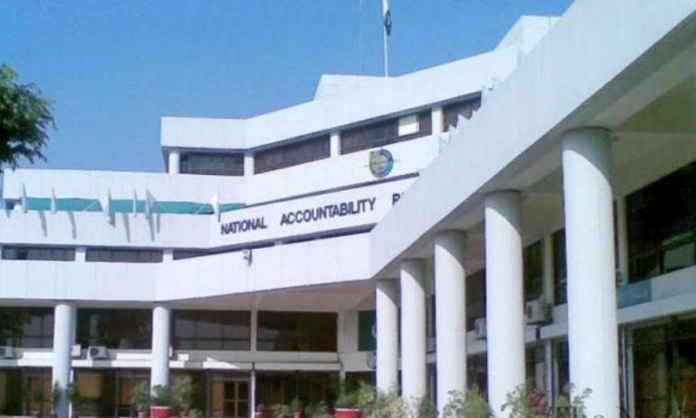——— Approves changes to NAB laws, accepts appeals against previous ruling
——— Five-member bench sets aside Supreme Court’s last year ruling
——— Says order wasn’t in accordance with Practice & Procedure Act
——— Asserts Court not persuaded that amendments violated the Constitution
Staff Report
ISLAMABAD: The Supreme Court on Friday restored changes to the country’s anti-graft laws, accepting the federal government’s appeal against the court’s Sept 15 verdict which struck down those amendments. Chief Justice of Pakistan (CJP) Qazi Faez Isa pronounced the verdict reserved by a five-member bench on June 6 after hearing intra-court appeals (ICAs) filed by the federal government and other parties.
In September 2023, then-CJP Umar Ata Bandial and Justice Ijazul Ahsan had accepted PTI founder Imran Khan’s 2022 petition while Justice Syed Mansoor Ali Shah dissented from the 2-1 verdict. Imran’s plea had challenged the changes introduced by the coalition government at the time, led by the PML-N.
The amendments made several changes to the National Accountability Bureau’s (NAB) laws, including reducing the term of the NAB chairman and prosecutor general to three years, limiting NAB’s jurisdiction to cases involving over Rs500 million, and transferring all pending inquiries, investigations, and trials to the relevant authorities.
Today, judges of the bench — headed by CJP Isa and also including Justices Aminuddin Khan, Jamal Khan Mandokhail, Athar Minallah, and Hasan Azhar Rizvi — reached the courtroom where the chief justice announced the verdict.
In a 16-page verdict issued today, the five judges said they allowed the appeals “by setting aside” the Sept 15 judgment and dismissed the petition filed by Imran. “However, there is no order as to costs,” the order added.
“The chief justice and the judges of the Supreme Court are not the gatekeepers of parliament,” the verdict observed.
It further noted that whenever possible, the SC “must try to uphold legislation rather than rush to strike it down”. “And if there be two or more interpretations of any legislation, to adopt the interpretation which upholds it,” the verdict added.
The court also noted that Imran’s petition and the Sept 2023 ruling “failed to establish that the amendments were unconstitutional”.
The Sept 15 ruling had restored corruption cases against public representatives, with prominent politicians who allegedly benefited from the amendments being likely to face cases again.
However, a month later, the apex court had been seized with a number of ICAs — moved by the federal government as well as by private citizens Zuhair Ahmed Siddiqui, who was an accused in a corruption case but not a party to the challenges to the NAB amendments case, and Zahid Imran.
Hearings on the matter in May had seen the judges debate whether to live-stream the case (as done on May 14) or not, before finally deciding against live broadcast due to concerns about the facility being politically misused.
Today’s written order observed that the amendments to the NAB laws “did not decriminalise any offence” but “only changed what may be investigated by NAB itself and the forum of the criminal trial”.
Citing Justice Shah’s dissent from the previous ruling, the order noted that the Sept 15 judgment “rewrites the Constitution, and also a number of statutes, by creating an artificial distinction between civil servants and public servants and elected holders of public office and persons in the service of Pakistan, which the minority opinion had also noted”.
The court stressed that “every care should be taken to ensure” that neither the legislature nor the judiciary encroach onto the domain of the other.
It highlighted that while the previous ruling had accepted the limit of Rs100 million under NAB standard operating procedures for cases that NAB “can investigate and send for trial but struck down legislation which had increased the limit to Rs500m”.
The verdict noted that Imran did not approach the SC “in a bona fide manner” and that he “also did not have the requisite locus standi since the amendments neither adversely nor personally affected him (Imran)”.
“It does not suffice that the original jurisdiction of the Supreme Court under Article 184(3) of the Constitution is exercised by simply mentioning that one or more fundamental rights are contravened,” the order observed.
It added that the Sept 15 ruling “did not demonstrate how the amendments violated or infringed any of the fundamental rights which were cursorily mentioned therein”.
The verdict recalled that NAB Additional Prosecutor General Chaudhry Mumtaz Yousaf stated that the bureau supports the ICAs.
Detailing on the origins of the National Accountability Ordinance 1999, the court said it was enacted 34 days after former military dictator Pervez Musharraf “forcibly assumed power after he was sacked”.
It acknowledged that the manner in which NAO provisions were “applied, or were disregarded, led to the “widely-held perception that the ordinance primarily was an instrument of political victimisation and political engineering”.




